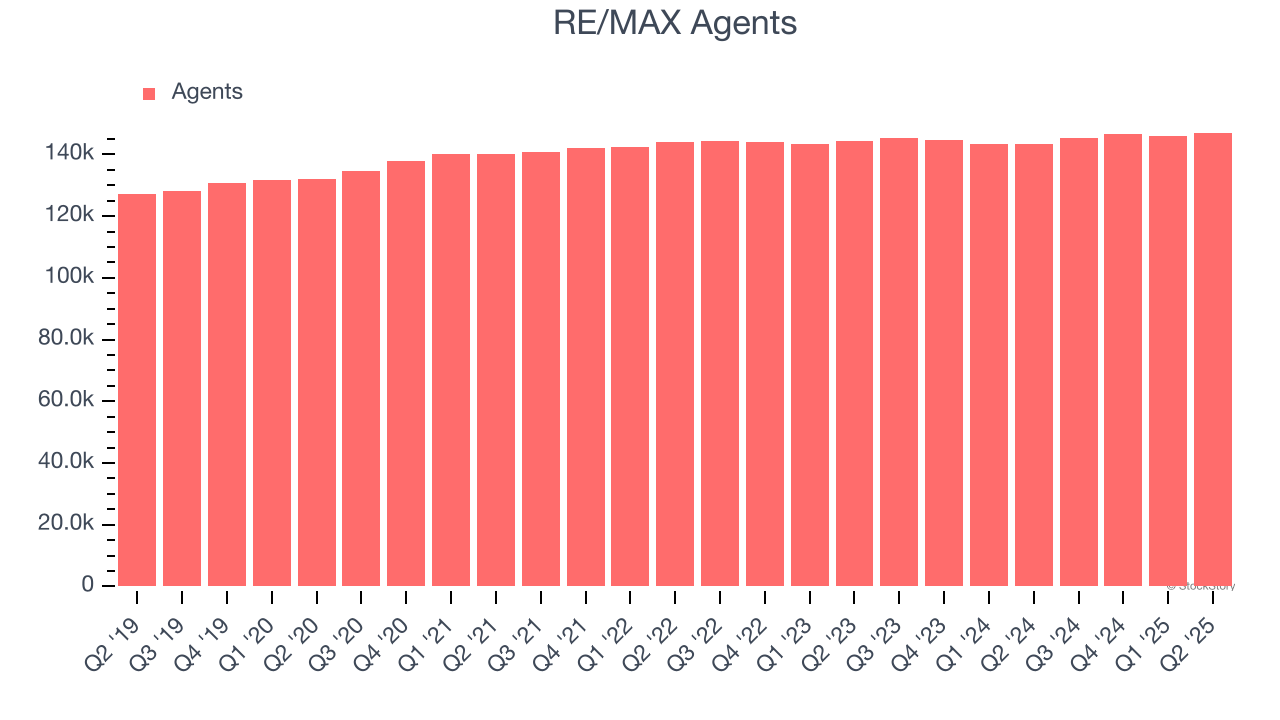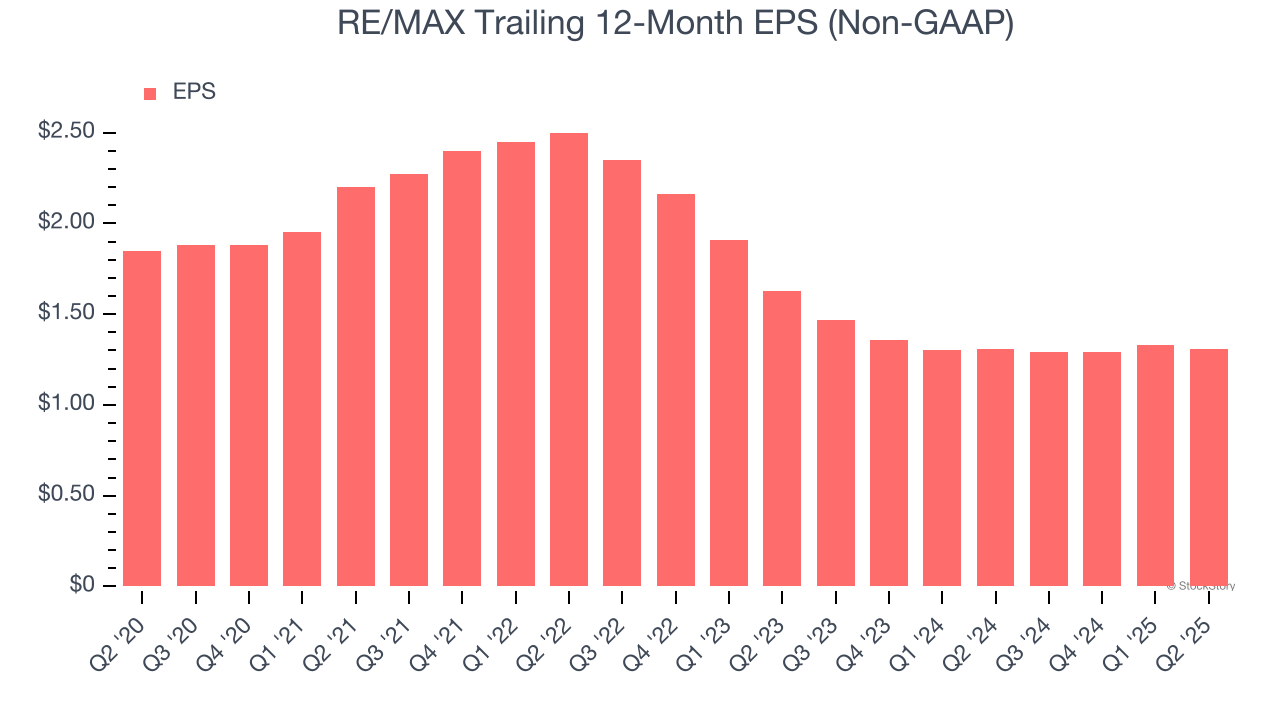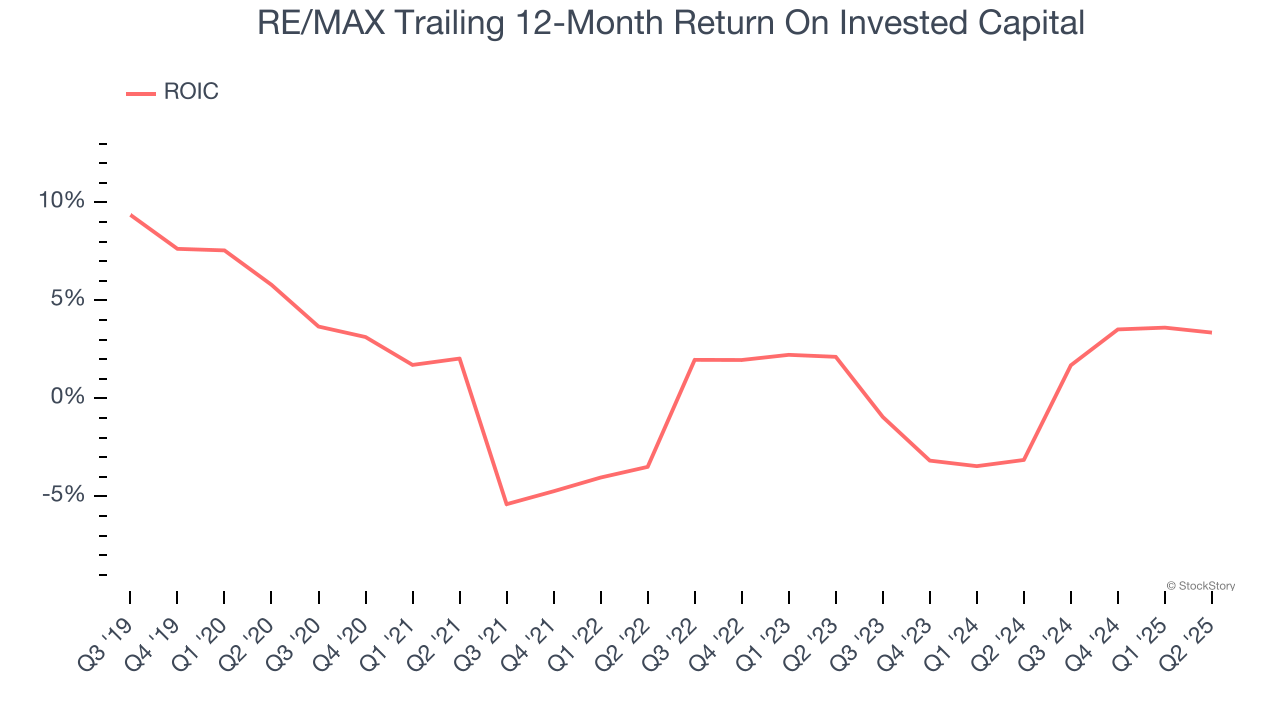
Over the past six months, RE/MAX’s shares (currently trading at $8.61) have posted a disappointing 14.4% loss, well below the S&P 500’s 5.4% gain. This might have investors contemplating their next move.
Is now the time to buy RE/MAX, or should you be careful about including it in your portfolio? See what our analysts have to say in our full research report, it’s free.
Why Do We Think RE/MAX Will Underperform?
Despite the more favorable entry price, we're sitting this one out for now. Here are three reasons why there are better opportunities than RMAX and a stock we'd rather own.
1. Inability to Grow Agents Points to Weak Demand
Revenue growth can be broken down into changes in price and volume (for companies like RE/MAX, our preferred volume metric is agents). While both are important, the latter is the most critical to analyze because prices have a ceiling.
Over the last two years, RE/MAX failed to grow its agents, which came in at 147,073 in the latest quarter. This performance was underwhelming and implies there may be increasing competition or market saturation. It also suggests RE/MAX might have to lower prices or invest in product improvements to accelerate growth, factors that can hinder near-term profitability. 
2. EPS Trending Down
Analyzing the long-term change in earnings per share (EPS) shows whether a company's incremental sales were profitable – for example, revenue could be inflated through excessive spending on advertising and promotions.
Sadly for RE/MAX, its EPS declined by 6.7% annually over the last five years while its revenue grew by 2.6%. This tells us the company became less profitable on a per-share basis as it expanded.

3. Previous Growth Initiatives Haven’t Paid Off Yet
Growth gives us insight into a company’s long-term potential, but how capital-efficient was that growth? Enter ROIC, a metric showing how much operating profit a company generates relative to the money it has raised (debt and equity).
RE/MAX historically did a mediocre job investing in profitable growth initiatives. Its five-year average ROIC was 0.2%, lower than the typical cost of capital (how much it costs to raise money) for consumer discretionary companies.

Final Judgment
RE/MAX falls short of our quality standards. Following the recent decline, the stock trades at 6.5× forward P/E (or $8.61 per share). While this valuation is optically cheap, the potential downside is huge given its shaky fundamentals. There are better investments elsewhere. Let us point you toward our favorite semiconductor picks and shovels play.
High-Quality Stocks for All Market Conditions
Donald Trump’s April 2025 "Liberation Day" tariffs sent markets into a tailspin, but stocks have since rebounded strongly, proving that knee-jerk reactions often create the best buying opportunities.
The smart money is already positioning for the next leg up. Don’t miss out on the recovery - check out our Top 5 Growth Stocks for this month. This is a curated list of our High Quality stocks that have generated a market-beating return of 183% over the last five years (as of March 31st 2025).
Stocks that made our list in 2020 include now familiar names such as Nvidia (+1,545% between March 2020 and March 2025) as well as under-the-radar businesses like the once-small-cap company Exlservice (+354% five-year return). Find your next big winner with StockStory today.
StockStory is growing and hiring equity analyst and marketing roles. Are you a 0 to 1 builder passionate about the markets and AI? See the open roles here.



